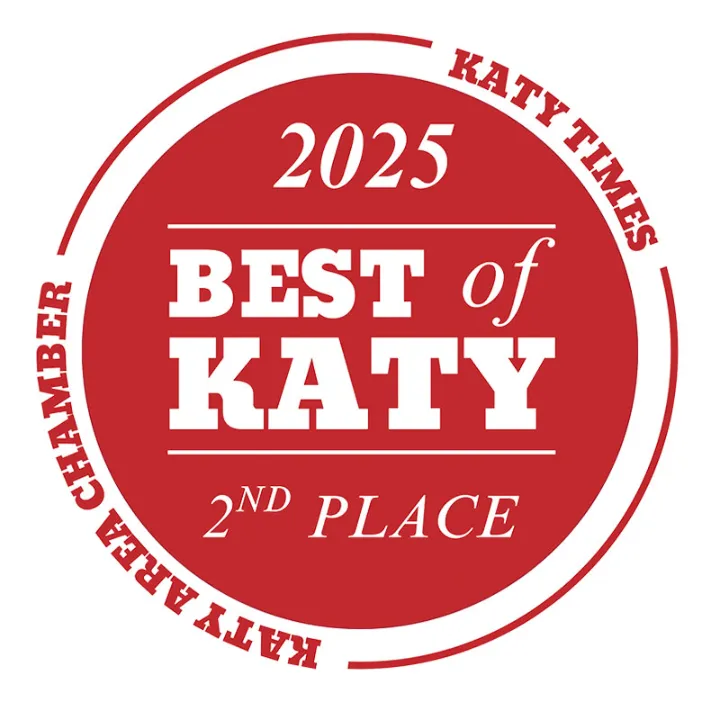Your Trusted Houston Commercial Real Estate Brokerage
Viking Enterprise LLC is part of eXp Commercial, an agent-led, cloud-based commercial real estate brokerage with agents across the globe.
Email: [email protected]
Call: (281) 222-0433
Your Trusted Katy / Fulshear & Houston Commercial Real Estate Brokerage
Viking Enterprise LLC is part of eXp Commercial, an agent-led, cloud-based commercial real estate brokerage with agents across the globe.
Looking to invest, buy, sell or lease? We can help.
Looking to invest, buy, sell or lease? We can help.
FEATURED PROPERTIES




OUR FEATURED TENANTS & CLIENTS
eXp Commercial - Viking Enterprise Team's real estate network provides unparalleled commercial real estate services to Tenants and Landlords around the Katy- Houston area. Our knowledge, experience, and reputation sets us apart from many firms.
A commercial property owner might have various plans that would necessitate the services of a commercial real estate broker. Some of the common scenarios include:
1. Selling the Property: If the owner decides it’s time to sell the property, a commercial real estate broker can help determine the market value, market the property effectively, and negotiate with potential buyers to get the best possible price.
2. Leasing Space: For property owners looking to lease out part or all of their commercial space, a broker can help find suitable tenants, negotiate lease terms, and ensure the lease agreements meet all legal requirements and serve the owner’s best interests.
3. Acquiring More Properties: Owners looking to expand their portfolio would benefit from a broker's knowledge of the market, access to listings, and negotiation skills to secure additional properties at favorable terms.
4. Property Management: While not all brokers offer this service, some commercial real estate brokers or their affiliates offer property management services. This can be particularly appealing for owners who prefer a hands-off approach or are managing properties from a distance.
5. Market Analysis: Owners considering future developments, renovations, or rebranding of their property might engage a broker for a comprehensive market analysis. This helps in understanding current market trends, the demand for different types of spaces, and potential returns on investment for various strategies.
6. Refinancing: In situations where a property owner is looking to refinance their property, a commercial real estate broker can provide valuable insights into the property’s current market value, assist in gathering necessary documentation, and even help in finding the best financing options.
7. Partnership or Investment Opportunities: Owners interested in exploring partnerships, joint ventures, or seeking investors for expansion or development projects might use a broker to find and vet potential partners or investors.
8. Consulting on Zoning and Use Changes: When contemplating a change in the use of the property or dealing with zoning issues, a broker with experience in local regulations and the specific property type can provide guidance and strategic planning assistance.
9. Exit Strategy Planning: For owners looking to plan an exit strategy from their investment, whether it’s through a strategic sale or a gradual winding down of operations, brokers can provide market insights, timing advice, and valuation services to optimize the exit process.
In any of these scenarios, the expertise and services provided by a commercial real estate broker can save the property owner time and money, while also providing access to a wider network of potential buyers, tenants, and industry professionals. Give us a call today!
Reviews

🔁 Lease It to Yourself? How to Rent Your Own Building to Your Business ✅
🔁 Lease It to Yourself? How to Rent Your Own Building to Your Business ✅
🏢 Owner-Occupied CRE Strategy: Leasing to Your Own Business Explained 💼
❓ Can I Lease My Own Building to My Business? Here's What You Need to Know
Many business owners eventually ask the question: “Can I lease my own building to my company?”
The answer is yes—and when done properly, it can be one of the smartest real estate strategies for wealth building, asset protection, and tax planning.
Let’s break down how it works, the benefits, and what to watch out for.
✅ What Does It Mean to Lease a Building to Your Business?
In simple terms, you (the individual or entity) own the commercial property personally or through a holding company, like an LLC. Then, your operating business becomes the tenant, signing a lease and paying rent.
This strategy is commonly used with medical offices, retail stores, professional practices, and warehouses.
💼 Key Benefits of Leasing to Your Own Business
1. Build Equity in Your Commercial Property
Instead of paying rent to a landlord, you're investing in your own asset. As the property appreciates, so does your net worth.
2. Tax Deductions & Depreciation
Your business can deduct rent payments as an expense. Meanwhile, the ownership entity may benefit from depreciation, interest write-offs, and other tax strategies.
3. Asset Protection & Legal Separation
Separating your business from the property helps protect both. If your business faces legal issues, your real estate remains shielded under the property-holding entity.
4. Exit Strategy or Retirement Plan
When it’s time to sell the business, you can keep the building and lease it to the new owner—or sell both together at a premium.
⚠️ Things to Watch Out For
1. Fair Market Rent Is Critical
If the IRS determines you're undercharging or overcharging rent to yourself, it could trigger penalties. Make sure rent is aligned with comparable properties.
2. Separate Entities Are a Must
You need to create two legally distinct entities: one that owns the property, and one that operates the business. Commingling funds or ignoring legal separation can negate the benefits.
3. Loan Terms May Matter
Some commercial loans (especially SBA 504 and 7a) require that the owner-occupied business uses at least 51% of the space. If you lease to yourself, make sure you’re meeting all lender requirements.
🧩 When Leasing to Yourself Makes the Most Sense
· You’re profitable and want to improve tax efficiency
· You’re planning to stay in the space for the long term
· You want to retain control over your operating location
· You’re preparing for a business sale or succession
🏁 Final Thoughts
Leasing your own building to your business is a smart real estate play when structured correctly. It turns your rent payments into wealth, gives you long-term control, and opens the door to advanced tax planning strategies.
Whether you're a doctor buying a medical office, a contractor setting up shop, or a retail business looking to invest in yourself—this move could be your game-changer.
Need help structuring the right deal?
Let’s talk—We help business owners across Houston, Katy, and Fulshear secure financing and broker the best CRE deals tailored to owner-occupied success.
https://www.houstonrealestatebrokerage.com/
https://www.houstonrealestatebrokerage.com/houston-cre-navigator
https://www.commercialexchange.com/agent/653bf5593e3a3e1dcec275a6
http://expressoffers.com/[email protected]
https://app.bullpenre.com/profile/1742476177701x437444415125976000
https://author.billrapponline.com/
https://www.amazon.com/dp/B0F32Z5BH2
© 2023-2024 Bill Rapp, Broker Associate, eXp Commercial Viking Enterprise Team
eXp Commercial - Viking Enterprise team real estate network provides unparalleled commercial real estate services to Tenants and Landlords around the greater Katy & Houston MSA area. Our knowledge, experience, and reputation sets us apart from many firms.
A commercial property owner might have various plans that would necessitate the services of a commercial real estate broker. Some of the common scenarios include:
1. Selling the Property: If the owner decides it’s time to sell the property, a commercial real estate broker can help determine the market value, market the property effectively, and negotiate with potential buyers to get the best possible price.
2. Leasing Space: For property owners looking to lease out part or all of their commercial space, a broker can help find suitable tenants, negotiate lease terms, and ensure the lease agreements meet all legal requirements and serve the owner’s best interests.
3. Acquiring More Properties: Owners looking to expand their portfolio would benefit from a broker's knowledge of the market, access to listings, and negotiation skills to secure additional properties at favorable terms.
4. Property Management: While not all brokers offer this service, some commercial real estate brokers or their affiliates offer property management services. This can be particularly appealing for owners who prefer a hands-off approach or are managing properties from a distance.
5. Market Analysis: Owners considering future developments, renovations, or rebranding of their property might engage a broker for a comprehensive market analysis. This helps in understanding current market trends, the demand for different types of spaces, and potential returns on investment for various strategies.
6. Refinancing: In situations where a property owner is looking to refinance their property, a commercial real estate broker can provide valuable insights into the property’s current market value, assist in gathering necessary documentation, and even help in finding the best financing options.
7. Partnership or Investment Opportunities: Owners interested in exploring partnerships, joint ventures, or seeking investors for expansion or development projects might use a broker to find and vet potential partners or investors.
8. Consulting on Zoning and Use Changes: When contemplating a change in the use of the property or dealing with zoning issues, a broker with experience in local regulations and the specific property type can provide guidance and strategic planning assistance.
9. Exit Strategy Planning: For owners looking to plan an exit strategy from their investment, whether it’s through a strategic sale or a gradual winding down of operations, brokers can provide market insights, timing advice, and valuation services to optimize the exit process.
In any of these scenarios, the expertise and services provided by a commercial real estate broker can save the property owner time and money, while also providing access to a wider network of potential buyers, tenants, and industry professionals. Give us a call today!

Find the perfect location for your business.
Let us help your business succeed.

🔁 Lease It to Yourself? How to Rent Your Own Building to Your Business ✅
🔁 Lease It to Yourself? How to Rent Your Own Building to Your Business ✅
🏢 Owner-Occupied CRE Strategy: Leasing to Your Own Business Explained 💼
❓ Can I Lease My Own Building to My Business? Here's What You Need to Know
Many business owners eventually ask the question: “Can I lease my own building to my company?”
The answer is yes—and when done properly, it can be one of the smartest real estate strategies for wealth building, asset protection, and tax planning.
Let’s break down how it works, the benefits, and what to watch out for.
✅ What Does It Mean to Lease a Building to Your Business?
In simple terms, you (the individual or entity) own the commercial property personally or through a holding company, like an LLC. Then, your operating business becomes the tenant, signing a lease and paying rent.
This strategy is commonly used with medical offices, retail stores, professional practices, and warehouses.
💼 Key Benefits of Leasing to Your Own Business
1. Build Equity in Your Commercial Property
Instead of paying rent to a landlord, you're investing in your own asset. As the property appreciates, so does your net worth.
2. Tax Deductions & Depreciation
Your business can deduct rent payments as an expense. Meanwhile, the ownership entity may benefit from depreciation, interest write-offs, and other tax strategies.
3. Asset Protection & Legal Separation
Separating your business from the property helps protect both. If your business faces legal issues, your real estate remains shielded under the property-holding entity.
4. Exit Strategy or Retirement Plan
When it’s time to sell the business, you can keep the building and lease it to the new owner—or sell both together at a premium.
⚠️ Things to Watch Out For
1. Fair Market Rent Is Critical
If the IRS determines you're undercharging or overcharging rent to yourself, it could trigger penalties. Make sure rent is aligned with comparable properties.
2. Separate Entities Are a Must
You need to create two legally distinct entities: one that owns the property, and one that operates the business. Commingling funds or ignoring legal separation can negate the benefits.
3. Loan Terms May Matter
Some commercial loans (especially SBA 504 and 7a) require that the owner-occupied business uses at least 51% of the space. If you lease to yourself, make sure you’re meeting all lender requirements.
🧩 When Leasing to Yourself Makes the Most Sense
· You’re profitable and want to improve tax efficiency
· You’re planning to stay in the space for the long term
· You want to retain control over your operating location
· You’re preparing for a business sale or succession
🏁 Final Thoughts
Leasing your own building to your business is a smart real estate play when structured correctly. It turns your rent payments into wealth, gives you long-term control, and opens the door to advanced tax planning strategies.
Whether you're a doctor buying a medical office, a contractor setting up shop, or a retail business looking to invest in yourself—this move could be your game-changer.
Need help structuring the right deal?
Let’s talk—We help business owners across Houston, Katy, and Fulshear secure financing and broker the best CRE deals tailored to owner-occupied success.
https://www.houstonrealestatebrokerage.com/
https://www.houstonrealestatebrokerage.com/houston-cre-navigator
https://www.commercialexchange.com/agent/653bf5593e3a3e1dcec275a6
http://expressoffers.com/[email protected]
https://app.bullpenre.com/profile/1742476177701x437444415125976000
https://author.billrapponline.com/
https://www.amazon.com/dp/B0F32Z5BH2
© 2023-2024 Bill Rapp, Broker Associate, eXp Commercial Viking Enterprise Team
Find the perfect location for your business.
Let us help your business succeed.
9600 Great Hills Trail, Suite 150w Austin, TX 78759 |
855.450.0324 xx255
Texas Real Estate Commission Consumer Protection Notice Texas Real Estate Commission
Information About Brokerage Services eXp Commercial LLC #9010212
Viking Enterprise LLC #9009614

Sign up to receive the latest news on property investment and commercial real estate listings.
Contact Us
901 S Mopac Expwy, Bldg 2, Suite 350 Austin, TX 78746 | 512.474.5557Texas Real Estate Commission
Consumer Protection Notice Texas Real Estate Commission Information About Brokerage Services Reliance Retail, LLC #603091
Texas RS, LLC #9003193 | RESOLUT RE Is Licensed In Louisiana #0995694083


Facebook
Instagram
X
LinkedIn
Youtube
TikTok